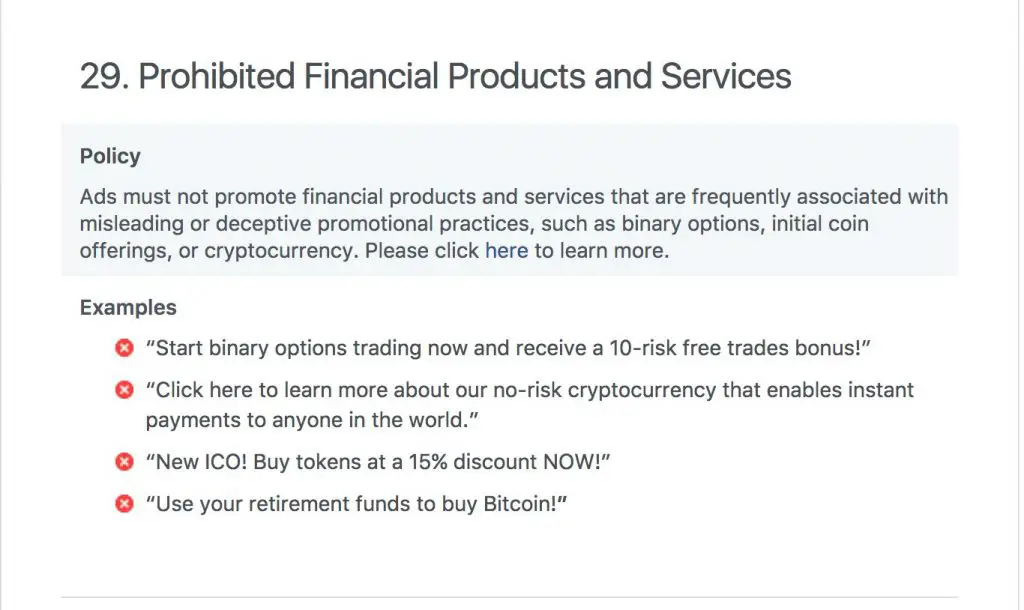Facebook is cracking down on ads related to what it calls “misleading or deceptive promotional practices,” by banning all ads promoting binary options, ICOs, and cryptocurrencies.
In a recent blog post, Facebook explains that two of its core advertising principles are, that “ads should be safe,” and that it builds for “people first.” The company always wants people to be able to discover and learn about new products on its platform, but it doesn’t want them to get scammed and deceived.
The Internet is rife with both scams and deceit, and Facebook feels that many companies advertising financial services related to binary options, initial coin offerings (ICOs) and cryptocurrency are “not currently operating in good faith,” and are thus, part of the problem.
As such, Facebook is now banning ads that “promote financial products and services that are frequently associated with [these] misleading or deceptive promotional practices.” If you’re wondering why you’re still seeing lots of ads related to the above, rest assured that you won’t be – pretty soon. While Facebook also admits that it can’t catch every ad, it’s relying on the Facebook community to report content that violates its Ad Policies.
Facebook says that its new policy is “intentionally broad,” so that it can take time to “better detect deceptive and misleading advertising practices.” As it starts enforcing the new policy, the company will be able to revisit as necessary when “signals improve.”
The recent popularity of cryptocurrencies has led to sharp rise of scams involving them; as they can’t really be regulated, Facebook itself can’t control the integrity of related products or services. So, it prefers to shut down the whole show instead, at least until things start looking more legit. Critics of this policy will argue that the move is akin to “throwing out the baby with the bathwater,” and will negatively affect legitimate companies’ ability to promote their services.
In any case, it has been deemed necessary, in order to protect the integrity of Facebook’s ad network. As the company explains, the “policy is part of an ongoing effort to improve the integrity and security of [its] ads, and to make it harder for scammers to profit from a presence on Facebook.”
[box]Read next: Facebook Is Bringing More Local News To Your News Feed[/box]

